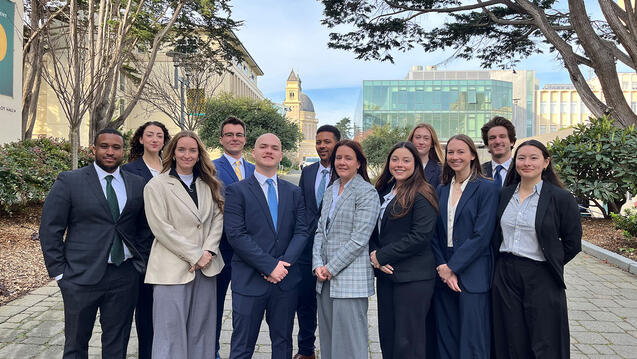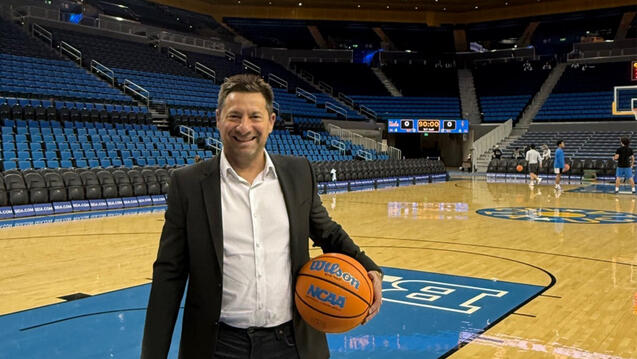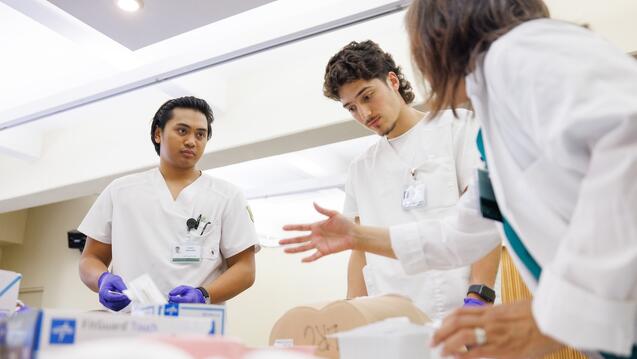From Exploitation to Empowerment

Combating human trafficking isn’t only about prosecuting the traffickers. It requires engaging communities, organizing advocacy groups and easing the way for victims to engage with society.
The 2021 Law Review symposium, “Exploitation to Empowerment: Leveraging the Law for Survivors of Human Trafficking,” brought together a number of stakeholders over three sessions to discuss the myriad ways to fight human trafficking in the Bay Area and beyond.
The symposium’s two virtual panels discussed civil remedies for survivors that take into account trauma awareness, as well as the technological innovations helping the fight against trafficking. Alameda County District Attorney Nancy O’Malley presented the Jan. 29 keynote address on H.E.A.T. Watch, a nationally recognized, multi-disciplinary approach that has been adopted by several U.S. agencies, including the Department of Justice and Health and Human Services.
Law Review Symposium Editor Meghan O’Day ‘21 feels buoyed by the discussions: “The collaboration seen here among academics, advocates, policy makers and law enforcement is exactly what we need to put an end to human trafficking in the Bay Area and the U.S.”
More than prosecution
In her address, O’Malley highlighted the five facets of the H.E.A.T. Watch program blueprint: training and engaging law enforcement; prosecuting traffickers and supporting victims; creating widespread, organized non-governmental advocacy; changing laws and allocation of resources; and, finally, engaging and educating the community.
She noted the last prong of that blueprint is the “one part where we can never do enough,” because much of the work involves convincing community members that human and sex trafficking are happening in their own backyard — often in schools and other places where young people congregate.
“This is not just a term,” O’Malley said. “This is not just something that happens somewhere else.”
Since starting H.E.A.T. Watch in 2009, O’Malley said her office has prosecuted more than 800 trafficking cases and trained more than 10,000 police officers in spotting potential trafficking situations. But even more important than catching the perpetrators, she says, is “replacing the basic necessities of life” for rescued victims.
“When we remove them from the worst person in their world, (we also remove them from the person who) is providing them necessities like housing and food and clothes,” O’Malley said. “If we don't have something to substitute, then we're failing them.”
Speakers at the symposium also included: Christian Na, Marian Hatcher, Sharmin Bock, Carissa Phelps, Carolyn Kim, and Halleh Seddighzadeh.


